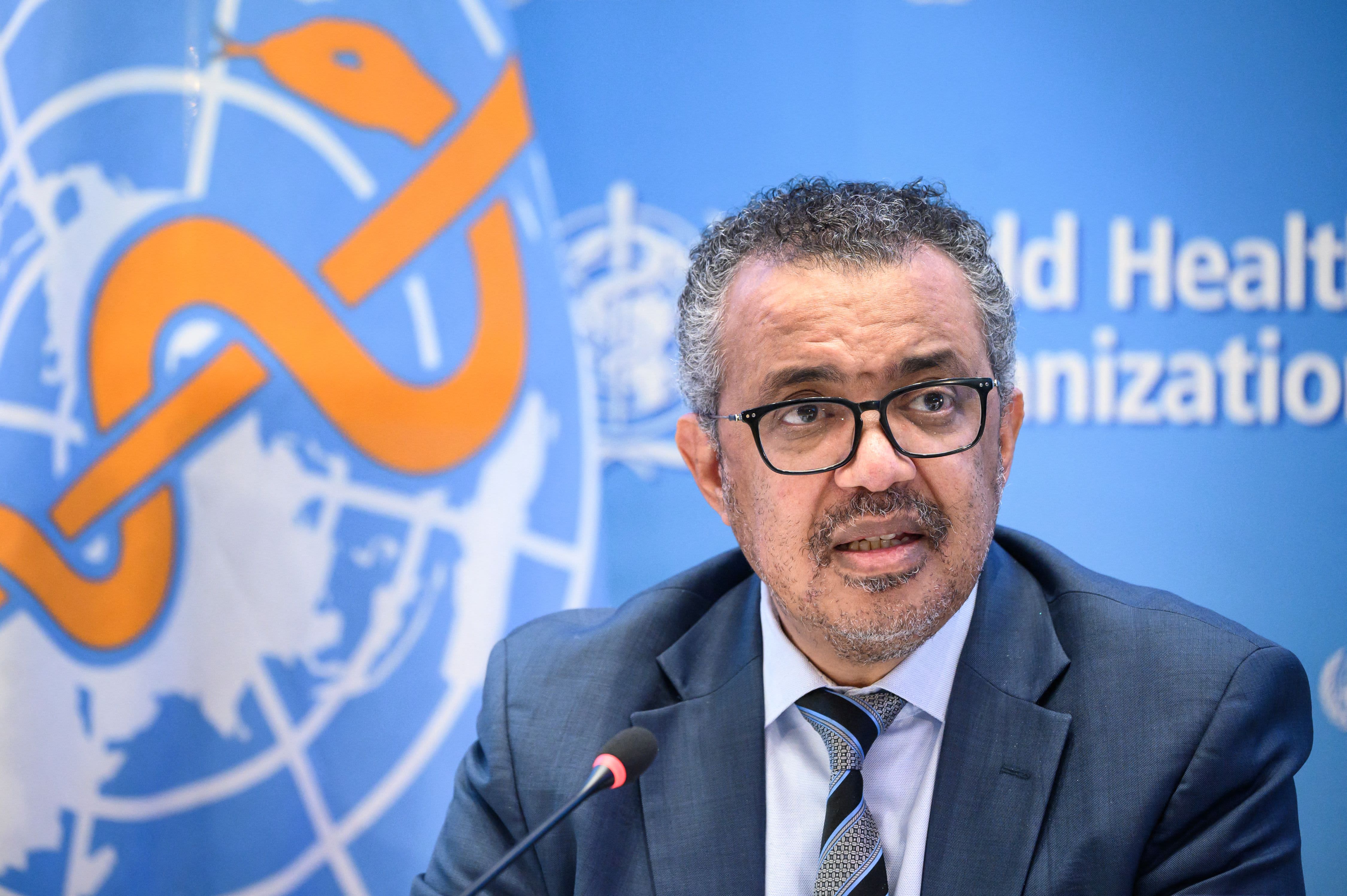The Covid-19 pandemic is at a “critical juncture” as it enters its third year, the WHO’s top official said on Monday.
Speaking at a press conference during a meeting with Svenja Schulze, Germany’s minister for economic cooperation and development, WHO Director-General Tedros Adhanom Ghebreyesus praised Germany — the biggest donor to the WHO — for approaching global public health with “solidarity and multilateralism.”
“These qualities are more important than ever, because the Covid-19 pandemic is now entering its third year and we are at a critical juncture,” Tedros told reporters.
“We have the tools to end the acute phase of this pandemic. But we must use them equitably and wisely.”
Noting Germany’s commitment to international cooperation and tackling the pandemic under its newly adopted G-7 presidency, Tedros praised the country’s efforts as “an example for all” but warned that “we still have a long road ahead.”
Globally, more than 71 million new cases of Covid were recorded over the past four weeks, according to data from Johns Hopkins University. While the U.S. and France recorded the highest number of cases during that period, with 18.3 million and 7.6 million respectively, Yemen and Vanuatu have suffered the highest case fatality rates in the world throughout the crisis, JHU data shows.
In Yemen, where a civil war is raging and less than 2% of the population has been vaccinated, almost one in five people who have contracted Covid-19 died, according to JHU. Meanwhile, in Vanuatu — where cases have remained low throughout the pandemic but just a third of the population is immunized against the virus — the case fatality rate is 14%.
But according to Tedros, vaccinations are not the only thing world leaders need to consider when looking at ways to help lower income countries protect their populations from the effects of the virus.
“Vaccines alone will not end the pandemic,” Tedros said. “Many countries need diagnostics, life-saving therapeutics — including oxygen and support for vaccine rollout.”
Speaking at the World Economic Forum’s virtual Davos Agenda event last week, Michael Ryan, executive director of the WHO Health Emergencies Programme, said society had a chance to end the Covid emergency in 2022 if longstanding inequities — such as fair access to vaccines and health care — were addressed.
